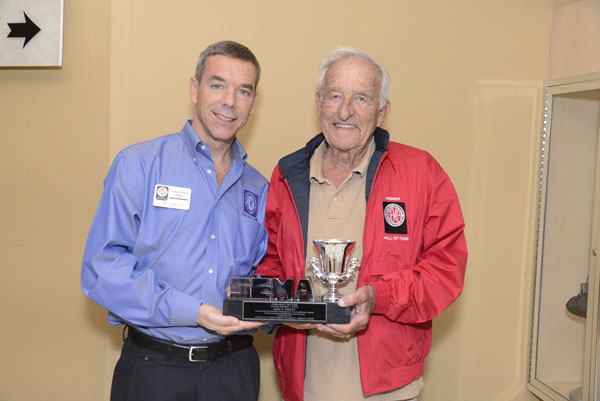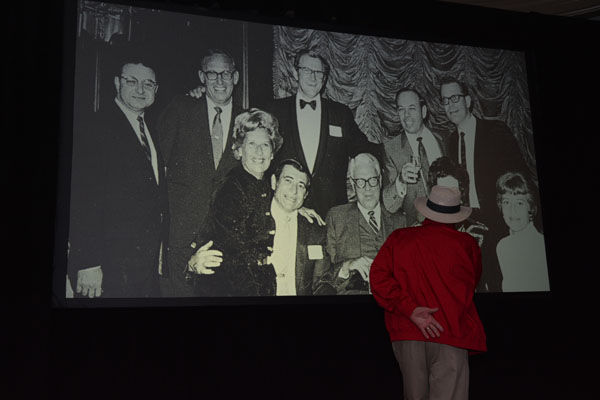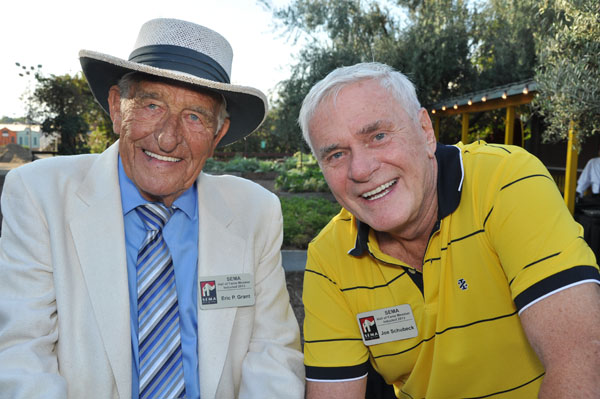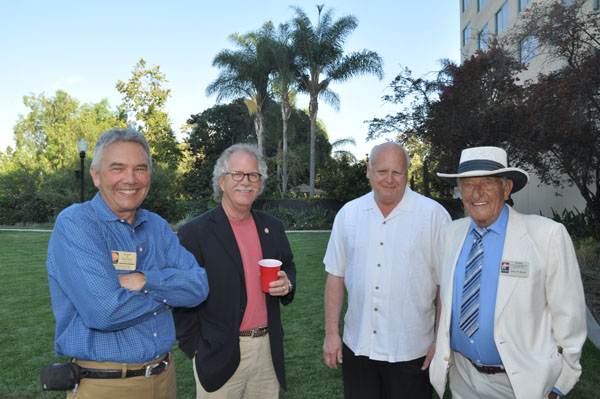2013 SEMA Hall Of Fame Inductee
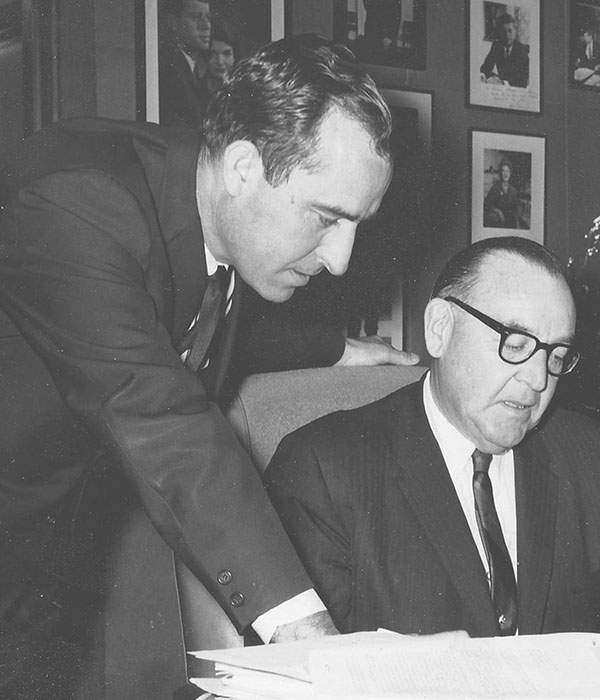
Eric Grant
At first glance, Eric Grant may seem an unlikely SEMA Hall of Fame candidate. He never owned a garage, never built a performance vehicle, never manufactured or even sold an automotive part. A lawyer by trade, he couldn’t be classified as a "car guy" per se. Yet his profound impact on the automotive aftermarket and SEMA’s earliest years cannot be disputed. After all, he was SEMA’s very first executive director—and how that came to be involved an incredible twist of fate.
In the 1950s and ‘60s, local, state and federal governments were increasingly regulating emissions and vehicle performance parts to address air quality and safety concerns. The aftermarket felt threatened, and yet the industry surprisingly tapped one of the most ardent regulators to lead SEMA. That was Grant. He turned out to be the right man for the job at exactly the right time, ushering in a period of tremendous association growth.
"I got involved with government regulations at cabinet level for California’s then-governor Ronald Reagan," recalled Grant. "I was with what is now known as the California Air Resources Board, but at that time it was the Motor Vehicle Pollution Control Board. I got involved in 1960. I had four years with the local air pollution control district in Los Angeles, which is now known as the South Coast Air Basin. I was selected by the county board of supervisors to represent Southern California at the state level."
He also served under President Johnson at the federal level to help establish the precursor to what has now become the Environmental Protection Agency.
Grant, who had degrees in law and engineering, was a staunch advocate of air-quality standards. But he also believed in the specialty-equipment industry’s ability to meet those standards.
"Representatives of SEMA came to me sometime between 1963 and 1965," he said. "They were most concerned that the laws that were being put together were going to restrict the ability of the aftermarket to produce parts for motor vehicles. I sat down with Willie Garner, Dean Moon and a whole bunch of other people and said, ‘Look, I’ve already put in the law, but if you can build a better product, you’re going to be legal."
Somehow, there was a meeting of the minds, with the industry representatives realizing they needed someone like Grant at SEMA’s helm and Grant realizing the good that SEMA could do for automotive issues. By 1968, he found himself leaving his government responsibilities to direct SEMA, which had only about 25 to 30 members at the time.
As executive director, he was instrumental in changing the name of what was then known as the Speed Equipment Manufacturers Association to the Specialty Equipment Manufacturers Association. A bylaws change also opened SEMA to the entire range of aftermarket businesses, from manufacturers to distributors and from retailers and service providers. (That inclusiveness would eventually lead to the organization’s Specialty Equipment Market Association moniker, which is still in use today.)
"When we did that, it just opened the floodgates," he stated proudly, noting that SEMA had grown to more than 500 member companies by the time he left. But the early years were not easy.
"We were faced with legal challenges by the California Highway Patrol, the Department of Transportation and a bunch of wackos in Pennsylvania," he quipped. "The challenges we faced were keeping the aftermarket legal. Because I had the experience writing the laws, I was able to exercise knowledge."
Detroit also proved less than friendly to the young trade association. "They didn’t want anyone messing around with their vehicles," he remembered.
Under Grant, however, SEMA met those obstacles head on, setting best practices and product standards for its membership that met and often surpassed the automakers’ specifications. Meanwhile, the association also forged a strong alliance with the National Hot Rod Association, acting as a de facto "safety arm" for its industry friend.
After his stint as executive director ended in 1973, Grant continued several years with SEMA as its legal council and governmental affairs officer.
Grant passed away on December 22, 2013.

